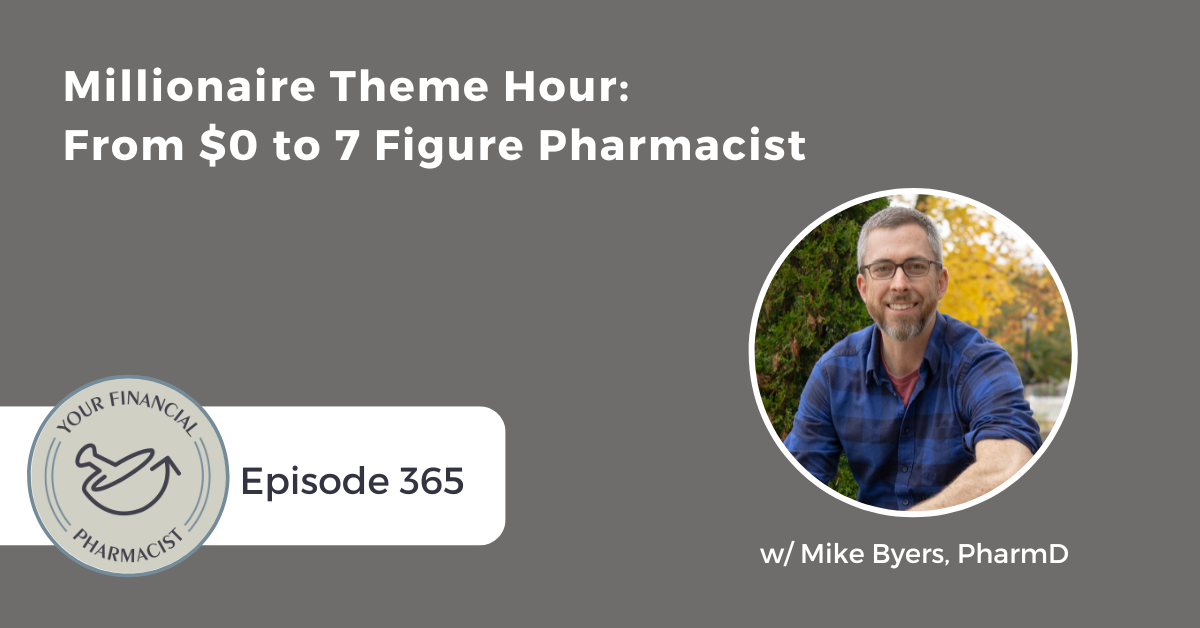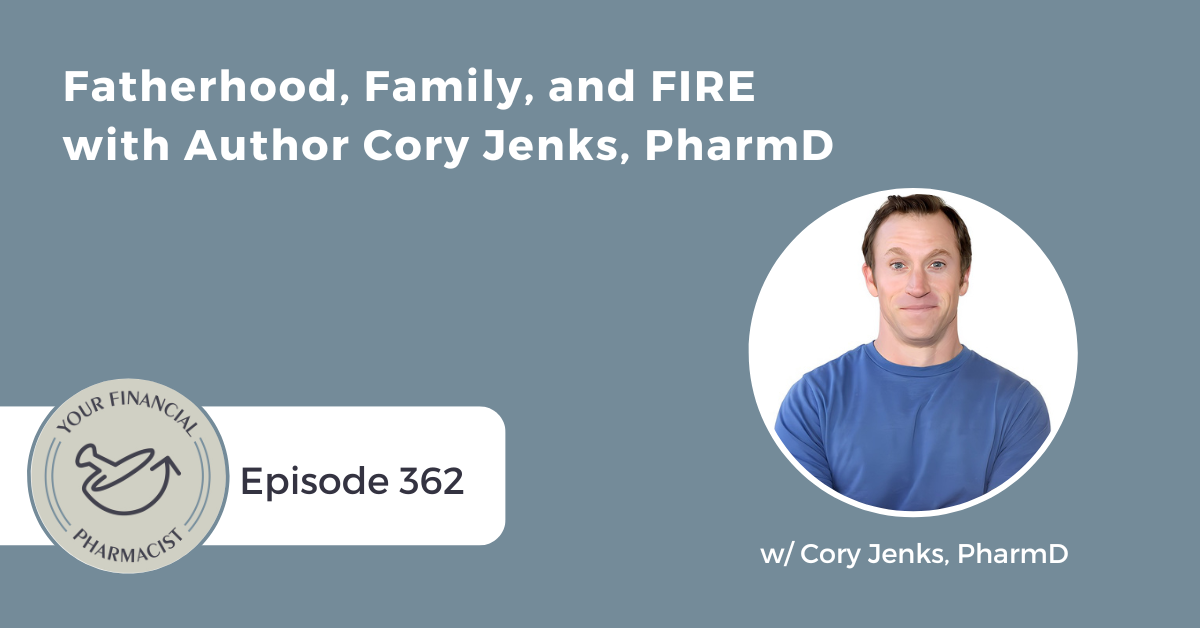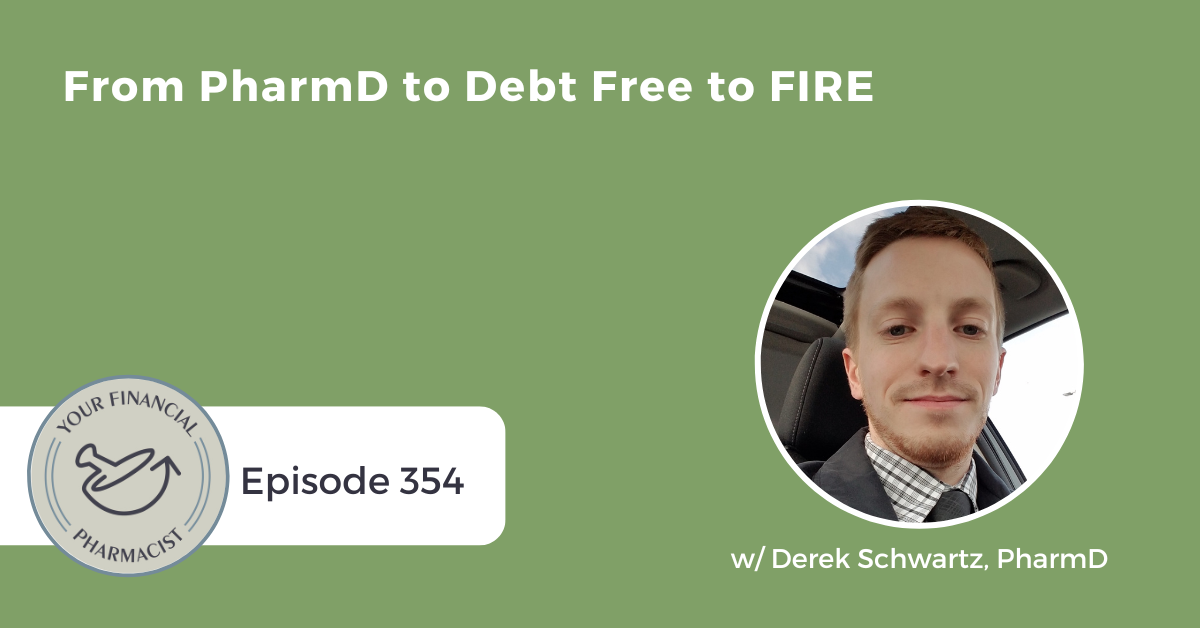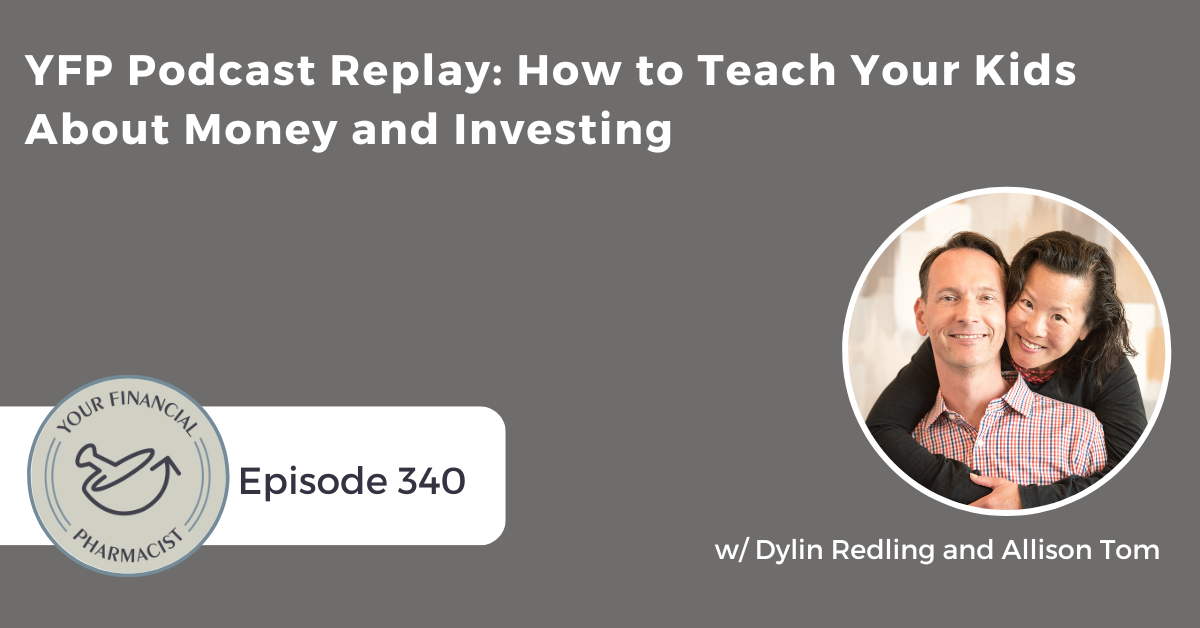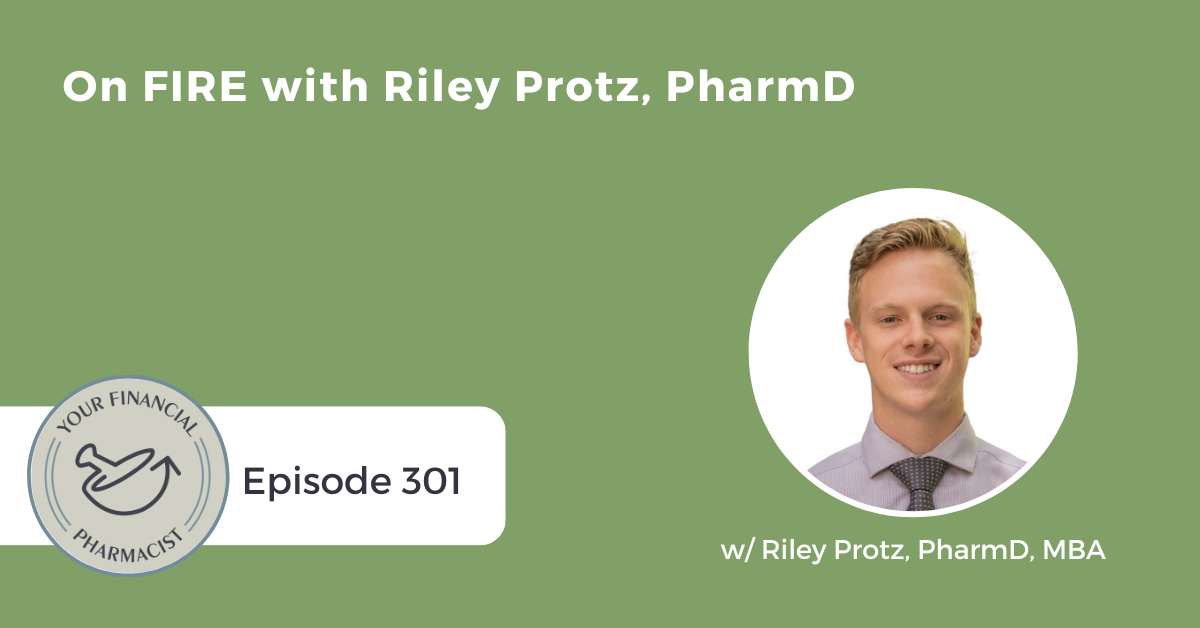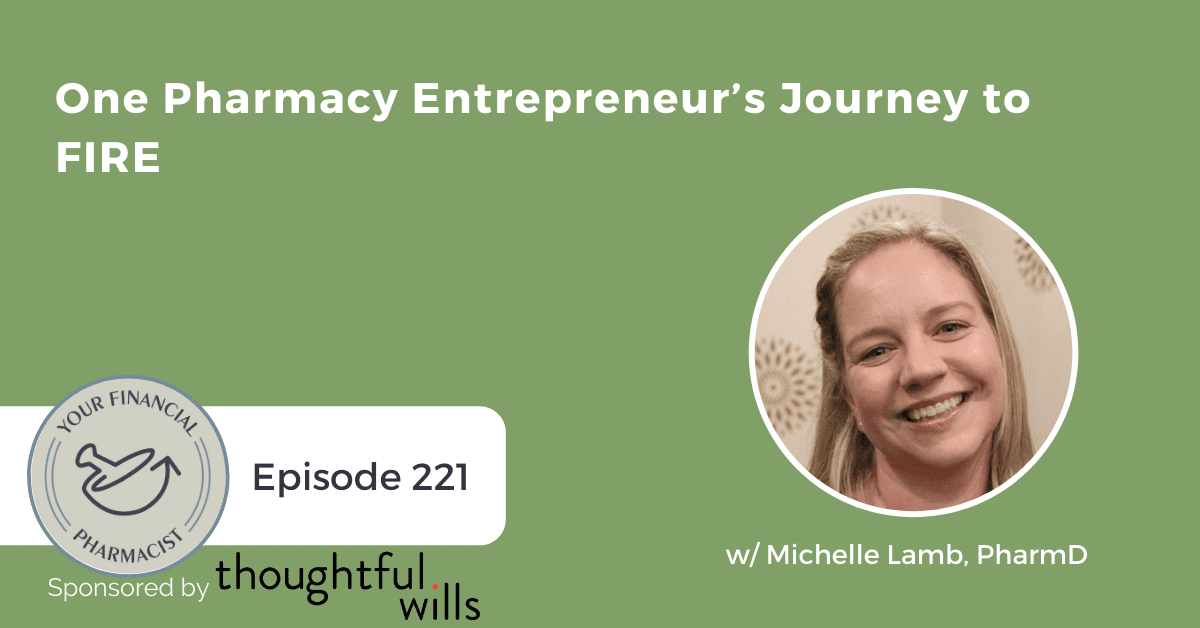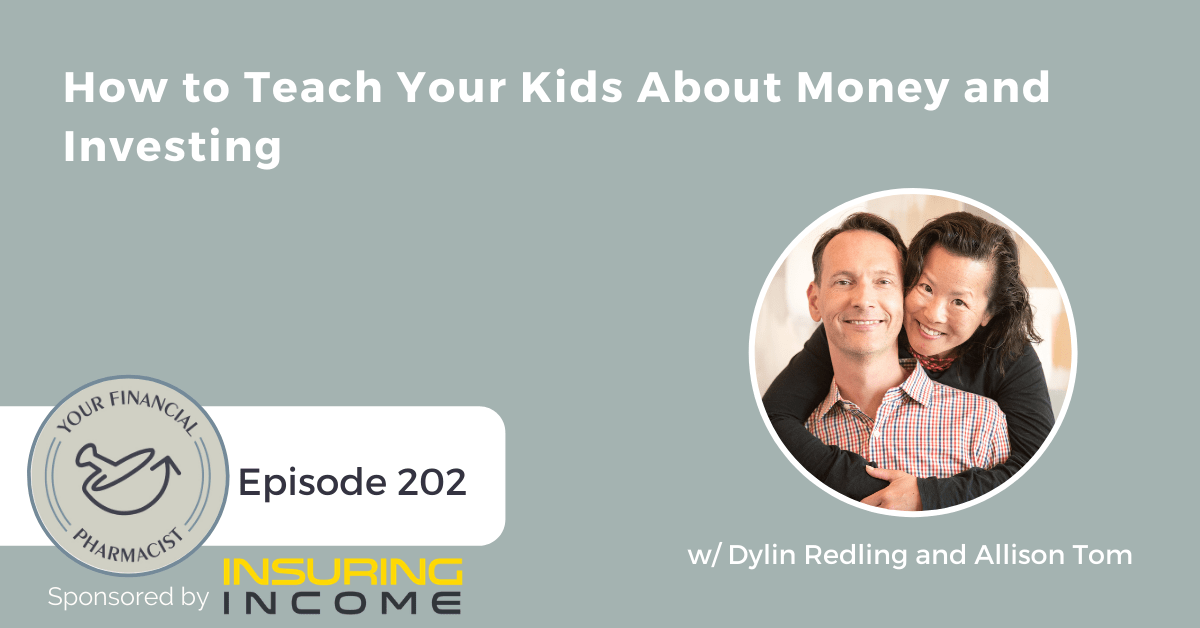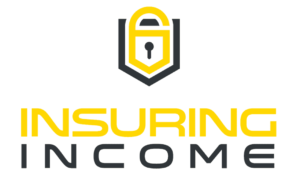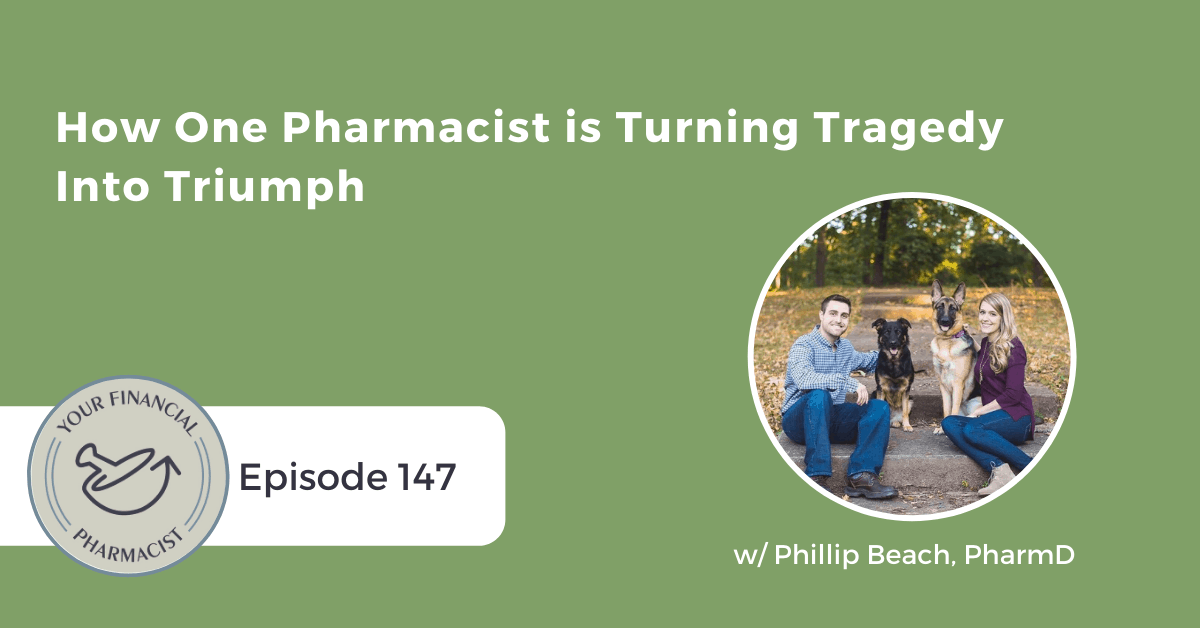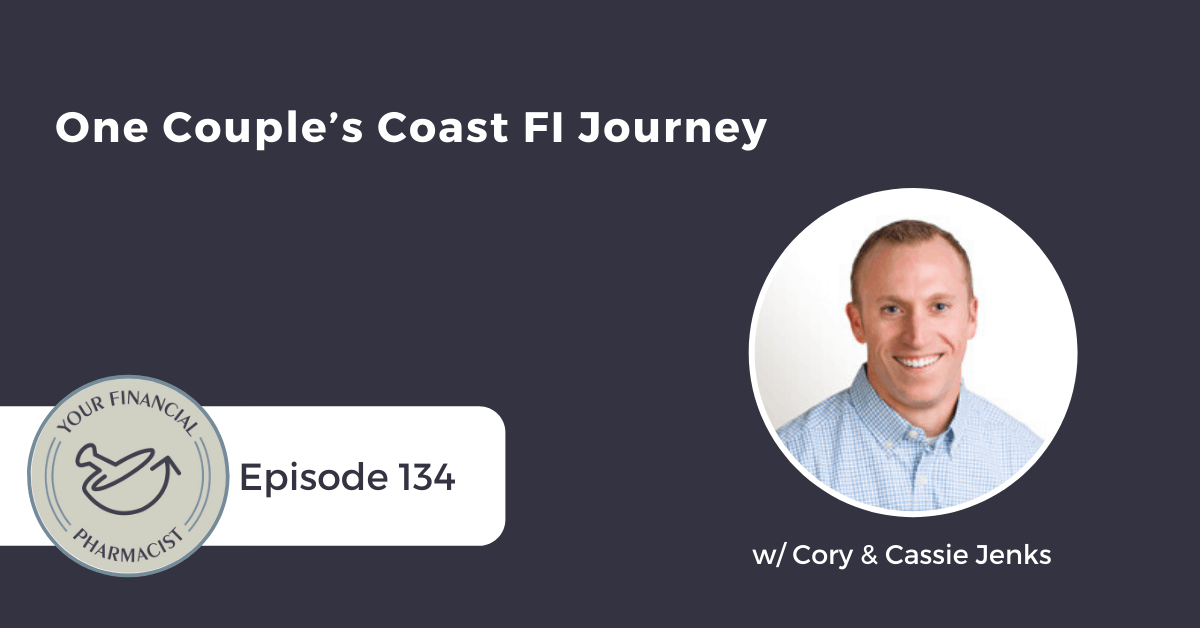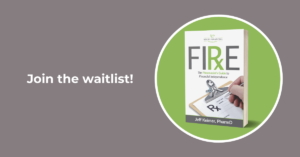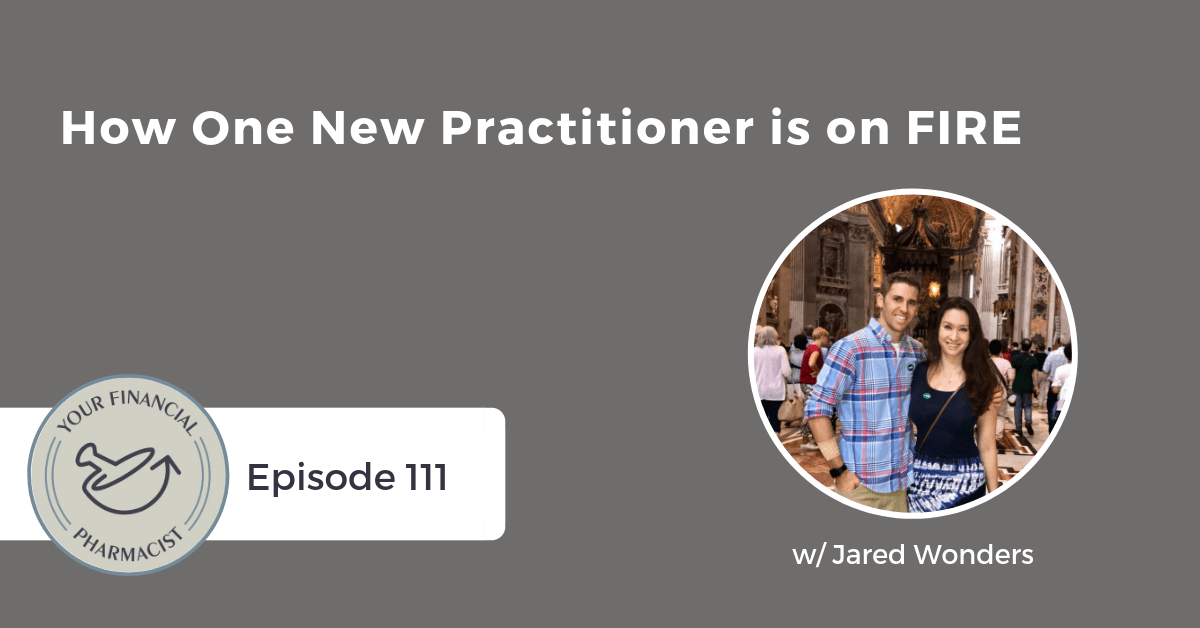Mike Byers, PharmD shares how he was able to achieve financial freedom and replace his retail pharmacist income through savings and real estate investments.
Episode Summary
In this episode, Michael Byers, PharmD shares how he was able to achieve financial freedom and step away from his job as a retail pharmacist at age 42. Mike outlines how he went from a position of financial weakness to a position of financial strength through frugality and real estate investing. A father of two young boys, Mike talks about the importance of having options and flexibility in this season as he and his wife raise their family.
About Today’s Guest
Mike Byers is a 2008 graduate of the University of Pittsburgh School of Pharmacy. He spent 16 years as a retail pharmacist for Giant Eagle where he worked as a staff pharmacist, a pharmacy team leader and a floater. After successfully investing in real estate for over 10 years, Mike decided to take a break from pharmacy in 2023 to spend time with his wife and two young boys. He loves his family, houses, outdoor adventure, and trying to find the right balance between YOLO and delayed gratification. He can be found on Instagram @DIYrentalGuy.
Key Points from the Episode
- Pharmacist’s financial journey to seven figures, early retirement, and mindset shifts. [0:00]
- Financial journey after graduation, including materialism, divorce, and saving for retirement. [5:59]
- Saving money, investing, and finding balance in life. [13:58]
- Real estate investing, personal growth, and overcoming setbacks. [23:17]
- Building wealth through real estate investing and managing cash flow. [28:54]
- Financial independence, real estate investing, and career development. [33:12]
Episode Highlights
“You have to be honest with yourself and say, what am I doing now? What is the result going to be? If I’m saving so much that it’s driving me crazy, the result is you’re going to go crazy. But for me, the end result was adventure.” – Mike Byers [20:51]
“I mean, just because you go down a path of a certain savings rate doesn’t mean you have to stay there, you can make adjustments.” – Mike Byers [21:41]
“What I’m looking at is that I have this money saved because I was diligent in being able to save, what does the next 10 years look like? Am I going to sacrifice weekends with my family and nights in order to have one or two extra million dollars?” – Mike Byers [32:07]
“And that’s something that you think about when you turn a certain age and you start wondering how much more do I really need to be comfortable after 65. I don’t want to be self-insuring myself if there’s an insurance product or an annuity that you can buy that would serve that same purpose.” – Mike Byers [32:52]
Links Mentioned in Today’s Episode
- Mike Byers on Instagram: DIYRentalGuy
- Mr. Money Mustache
- YFP Real Estate Investing Podcast 119: House Hacking with the House Hacking MD
- YFP Podcast 354: From PharmD to Debt Free to FIRE
- Rich Dad, Poor Dad by Robert Kiyosaki
- Die with Zero by Bill Perkins
- Millionaire Next Door by Tom Stanley
- Bigger Pockets
- Tax Free Wealth by Tom Wheelwright
- Tim Ulbrich on LinkedIn
- Subscribe to the YFP Newsletter
- YFP Planning: Fee-Only Financial Planning for Pharmacists
- YFP Disclaimer
- YFP on Instagram
- YFP Facebook Group
Episode Transcript
Tim Ulbrich 00:00
Hey everybody, Tim Ulbrich here and thank you for listening to the YFP Podcast where each week we strive to inspire and encourage you on your path towards achieving financial freedom. This episode we have a millionaire theme hour featuring Mike a 42 year old retired work optional pharmacist living in Pittsburgh, Pennsylvania. We discuss the highs and lows of his journey as he looks back, including how he felt trapped by big fixed expenses as a new graduate, why his early savings paid off big 20 years later, how his mindset shifted over time, why his real estate investing played an important role in his journey, ultimately replacing his pharmacist income, and why patience and short term frugality and sacrifice were key ingredients to his success.
Tim Ulbrich 00:41
Now, before we jump into today’s episode, I have a hard truth for you to hear. Making a six figure income is not a financial plan. And we’ll hear that on today’s episode. Yes, you’ve worked hard to get where you are, yes, you’re earning to get income. But if you ever wondered, Am I on track to retire? How do I prioritize and fund all of these competing financial goals that I have? How do I plan financially for big upcoming life events and changes like moving, having a child, changing jobs, getting married, or retiring? And perhaps why am I not as far along financially at this point in my career, as I thought I would be? The answer may be that your six figure income is not a financial plan. Yes, as a pharmacist, you have an incredible tool in your toolbox and that’s your salary. But without a vision and an intentional plan that good income will only go so far. That’s in part why we started your financial pharmacists back in 2015. At YFP we support pharmacists at every stage of their career to take control their finances, reach their financial goals and build wealth through comprehensive fee only financial planning and tax planning. Our team of certified financial planners and tax professionals work with pharmacists all across the United States and helps our clients set their future selves up for success. While living a rich life today. You can learn more and book a free discovery call by visiting yourfinancialpharmacist.com/learn. Again, that’s yourfinancialpharmacist.com/learn. Alright, let’s jump into my interview with Mike.
Tim Ulbrich 02:11
Mike, welcome to the show.
Mike Byers 02:13
Hey, I’m happy to be here.
Tim Ulbrich 02:14
Before we jump into your financial journey and the path of becoming a seven figure pharmacist, tell us more about your career in pharmacy. What led you into the profession? Where do you go to school? When did you graduate and the type that you have work you’ve been doing since?
Mike Byers 02:28
I think I started off like most folks going from high school to college, I went to the University of Pittsburgh. I started there. And of course, I was thinking about medicine, dentistry, pharmacy as my options and I was thinking about the path to get there. I don’t quite know what I wanted to do. My life kind of hit a roadblock sophomore year, I have a condition called ulcerative colitis. And I had to drop out of school at that time. And for a semester I was in the hospital for 16 days. And after the end of it and being in the hospital and experiencing things firsthand, I said, I think being a doctor is too hard for me. I think it’s it’s just not in the cards for what I have going on. And I didn’t know at the time that this disease wouldn’t be a huge part of my life. I found medicines over the years to control things. But I was also still dating my high school sweetheart at the time. And oddly enough, her father was a pharmacist. He owned an independent pharmacy. And I thought why not. So I finished my undergrad, I got a degree in economics and also a minor in engineering. And I went to pharmacy school from there.
Tim Ulbrich 03:54
And after graduation, those that are native to your area or where I lived for 10 plus years in Northeast Ohio, they’ll recognize the name Giant Eagle, but others will not. So tell us more about the work that you’ve been doing with Giant Eagle after graduation.
Mike Byers 04:09
Sure. So that was an exciting time to be in pharmacy school. I mean, you were going to school, you were learning things that were helping people and developing these skills and it was very fulfilling and the whole time, salaries were going up and you hear you would hear interesting things like the Alaska deal and all the things you’ve probably heard about it that time. But I did graduate and I worked for Giant Eagle. I was an intern there and stayed on as a staff pharmacist. I had some experience leading three different stores, which I learned a ton from and I was also floater and then staff again. So it was about 20 years from the time that I signed on as an intern to last year when I did resign.
Tim Ulbrich 04:59
Mike is a fellow 2008 grad. I graduated from Ohio Northern, I remember those times, right? It was the sign-on bonuses with the cars and classmates showing up with new cars in the parking lot and the Alaska deal, which I never saw on paper, but I heard of it as well. So we’ll share with our listeners, what is that all about? What I remember if it was, it was a big retail pharmacy chain that was offering a three year deal in Alaska for a million dollars. That’s what I remember the deal.
Mike Byers 05:28
The only thing I remember is sitting in class and hearing somebody turn around in their seat and say, I heard this. I heard a million dollars, three years. I’m gonna do it. And then I’m going to retire. Yeah, so maybe that planted the seed for some kind of early retirement financial independence at that point.
Tim Ulbrich 05:46
Nonetheless, it’s a very different time right here in 2024. So we’re going to dig into your current state of being a seven figure pharmacist achievement, financial independence, getting to this point of being work optional. We’ll talk about how you did that, and how real estate and traditional investments played into that. But I want to go all the way back to 2008 when you graduated with a net worth of zero, clean slate, no mounds of student loan debt, right, our listeners today are graduating $150k, $200k, you know, smaller debt loads, some might look at that and say, Hey, net worth, is your graduation, smooth sailing, but not so fast. Right? Tell us more.
Mike Byers 06:23
Yeah, before you throw tomatoes at the podcast, I did have a little bit of student debt. Which it was I mean, the difference between what I was making what I was spending, I can’t even remember how I paid it off. It was about $20,000. But I did go through a divorce, which cost some money, and I did have a real estate deal go south where I lost a lot of money. So I have had to dig myself out several times since 2008. But yes, I did. I did graduate with roughly a clean slate. And worked my way up to now where my passive income through real estate pretty much replaces my salary at 30 hours a week as a pharmacist.
Tim Ulbrich 07:13
What were some of the decisions, and we’ll dig deeper as we go throughout. But what were some of the decisions that you made early on as a new practitioner, you know, as it relates to car purchases and other things. You know, one of the things you shared with me prior to recording was that quote, “I became obnoxiously materialistic, which I partly blame for my marriage falling apart.” What do you mean by that? And how did this ultimately, you know, play into not only the financial plan, obviously the relationship but what would be the beginning of of, you know, that trench that you would eventually dig yourself out of.
Mike Byers 07:44
So like, like we mentioned, it was exciting times to graduate with bonuses. And we I graduated and I was married, we got married the last year of school during rotations. And we were living in her parent’s basement, not because we needed to financially, but because we weren’t sure where we were going to end up for her job. But I bought an Audi. A luxurious Audi. While it wasn’t even three months after I graduated, still living in my in-laws basement, bought this fancy new car. And it just seemed like the thing I was supposed to do. Long story short, I mean, we eventually moved. She got a job north of the city, we moved into a nice townhome rental. Not much longer after that, I’m on Zillow shopping for a nice, big, fancy house. So the fancy house came not much long after that. And I did become obnoxiously materialistic. And it wasn’t long after I moved into that house where I saw the house on the next street. He said, Gee, I wonder when or what it would take to get that bigger house. And that was just the way I was operating and had we not gotten divorced, I could still be operating that way. But it was just a mindset where I blame being really materialistic 10%. 90% we were young and ultimately not right for each other. But it wasn’t much longer after living in that house a couple of years where the bomb went off and divorced, trying to pick up the pieces again.
Tim Ulbrich 09:34
So you don’t go from that point to becoming a seven figure pharmacist by continuing that mindset and continuing those behaviors. So something shifted, something happened from a mindset and a behavior perspective. It sounds like that was the divorce. Tell us more about that.
Mike Byers 09:50
It absolutely was. I realized that I didn’t need a big house and a fancy car to be happy. I said the exact opposite – how little can I survive on? Or how little can I have material wise in order to live a happy life and I somehow found a studio apartment in the city, it was 350ish square feet. When my mom first saw it the first time, took her breath away, because it was just that small – the bedroom was in the kitchen. Yeah. And those were those were happy times. I lived that way for a couple years. And it felt really comfortable. But I still wasn’t saving. A couple years goes by and I’m like, well, kind of on this path where my rent is relatively cheap, my salary is relatively high. Why don’t I have a savings goal? Because I didn’t feel like I was doing the right thing at the time. So my goal that year, I think this was about 2012. So a couple years after divorce four years after graduating, I decided I wanted to save in addition to 401k, I wanted to save $2,000 a month. And each month I would play the game, if I wanted to buy something I worked extra. If it looked like I wasn’t going to hit my goal I cut back. And that’s what I did for that year to in addition to maxing out 401k to build up some cash savings.
Tim Ulbrich 10:11
So if I’m following correctly from jump street, you’re maxing out your 401k. So you’re leveraging the tax advantage account. And then you hit this point, shortly after the divorce four years into your pharmacy career. You’re in this studio apartment 350 square feet, and you realize, Hey, I’ve got an opportunity to more aggressively save. And so you set this target, which you know, to be on, I mean, $2,000 as a percentage of one’s take home pay, that’s a big chunk of money. And you see this a lot in the financial independence, retire early the FIRE community where there’s very aggressive savings rates, right, you’re in your early 40s. So to get to a net worth of seven figure plus, it’s going to take a substantial amount of savings to do that at an early age. So did your savings rate stay there? What did the trajectory look like as you were building that over time?
Mike Byers 12:21
So I hit that number, okay. And I was able to save about $25,000 that year. So I built up my cash savings. When I after going through the divorce, I didn’t have that cash savings. And I built that up and again, I kind of felt comfortable like, Hey, I hit that goal for that year, and I got a new apartment, that apartment had one bedroom. Not necessarily more happy in that apartment, but it was more expensive. And it seemed nicer. So at that point, it was a little more rent, and I wasn’t saving money and about a year had gone by and I said to myself, What am I what am I doing now? I mean, I had this surplus, and I was on a good path. So I for whatever reason started Googling. I figured it was taxes. I said I typed into Google, “single high earner how to save on taxes.” Okay, so real estate comes up. And I’d always been interested in homes. I love home remodeling and you know, watching a little bit too much HGTV at the time. But the next day, my friend came over to watch a football game. Oddly enough, he says my mom was thinking about selling the duplex. I had known him in college. And my ears perked up because why not? So, long story short, I fell ass backwards into owning a duplex.
Tim Ulbrich 13:58
Little house hack.
Mike Byers 13:59
Yeah. House hack. Yeah.
Tim Ulbrich 14:01
How did that one work out? Tell us about that is an investment property?
Mike Byers 14:06
I mean, it was it was a huge learning curve. So I said yes. I said I contacted his mom. We did the whole thing without an agent. It needed a lot of repairs and the whole thing flooded while we were in escrow. The pipes burst it was during winter the heat wasn’t on. So I had to jump into renovating and immediately kind of learning how to increase the value of the property. So I did that. And you know, I went from a studio apartment to half of a duplex even though it didn’t have air conditioning. It felt I mean, I felt amazing. I renovated it. It was nice. And I was just living in the duplex I was charging downstairs rent that mostly covered my mortgage. And it was shortly after that time when I discovered Mister Money Mustache. I’m sure a lot of people that you’ve talked to have started that or had that at some point in their journey. But that’s when things really started to go pretty quickly and I’d love to talk about that experience.
Tim Ulbrich 15:25
Yeah, and we’ll dive into that deeper and we’ll link in the show notes and Mister Money Mustache. For those that aren’t already familiar, I suspect many people are, great resource great blog will also link to other episodes, we talked about house hacking for those that that’s a new term. The idea is that you typically lots of different ways to house hack but you know, the most common we live in a duplex triplex or quad, you live in one unit, and you rent out the remaining units, obviously trying to generate income streams and hopefully cover a portion or majority of your mortgage payment in turn your what you think of often separately, your primary residence and then investment properties, bundle those together. And there’s some creative financing strategies of ways that you can, you can do that. And I want to come back in a little bit to talk more about real estate because I know it’s been such a big part of your plan. I do want to go back to the savings rate piece because I know you started with that $2,000 month goal. You shared with me in advance that eventually you’re pushing that up closer to $4000 to $5,000 a month. A lot of pharmacists hear these aggressive savings rates. And they’re like, how? Right, how? You know, you think of a typical pharmacists income, take home pay $7000 to $7500, maybe $8,000 a month, depending on what they do. You look at large fixed costs, like house, cars, student loan payments, daycare, childcare, other expenses. And we work with many pharmacists where there’s just not a whole lot of margin, at least in current expenses. So give us a little bit more of the behind the scenes of how you were able to actually allocate a large percentage of your income? What sacrifices did that require? And then where were you putting that money? I heard early on it was cash savings beyond the 401k. But was that in IRAs? Was that brokerage accounts? Where were you putting that money?
Mike Byers 17:13
As far as stocks and retirement accounts, it’s just 401k. The Roth and the traditional just, I was saving so much at the time, the income limits, and then the limit that you could put in just seem too small for me. So how do you save? I mean, you mentioned that the three biggest things housing, transportation, and whether or not you have kids, I guess your third one would be food? If you don’t have kids, that third one, if you do is day care. Yeah. So house hacking. That’s the big way to save on your housing costs. So at one point, my housing costs were zero, because the rent went up. And I was saving at that time, I had paid off the loan on my car, and I kept it. So a lot of folks will pay off one vehicle and buy in the next or keep buying new vehicles that are pretty, pretty frequent pace, but if you keep your vehicle eight, nine, ten years, when you get to that point, it’s paid off. You can save a lot of money. So I was saving probably in the realm of $5,000 a month. So that included a paid off vehicle. It included rent from downstairs, a little bit of overtime manager salary. And saving on food. I mean, just not going out to eat a lot. That was a big thing for me. I mean, you can play the game where you get pretty extreme. And it was too much for me. I mean, there was one point where I was calculating the cost of the extra food I would have to consume to walk to work versus the cost per mile of gas if I had driven so what I was doing with that $5,000 a month, I was putting it all in my checking account. Okay, fine. It was just building out pretty quickly. I called the mortgage company and I said, hey, this PMI insurance. I have, you know, a certain amount of equity at this point. Can we make that go away? And they said no. I said why? And they said, Well, this is an FHA loan.
Tim Ulbrich 19:26
Yeah, right. Did it. On my first home. Didn’t know that.
Mike Byers 19:30
Yeah, blame myself. I blame the mortgage seller, whatever. I was so angry by that. And I was saving so much money that I paid off. I think it was $100,000 loan balance relatively quickly, like within a year and a half. Just because I was mad about that. And I wanted to make $120 a month go away. So I was putting it back into the real estate.
Tim Ulbrich 19:55
Got it. Okay. You mentioned something really interesting. You talked about of extremes, right? And you see this sometimes in the FIRE community and and let’s, let’s say out there and everyone’s on their own journey, everyone’s situation is different. You know, everyone’s cost a living expenses are different family situation is different. So everyone has to figure out what is the journey and pathway that allows them to achieve the goals that they want to achieve. But those that are on this financial independence, retire early or retire optional journey, you know, there is what you call the potential for this frugal fatigue. Right. And I love that term, because it’s real. And there’s a time and season for it, for that grind. And there’s a fatigue that comes with that as well. And so, my question for you is, how did you combat this? When you recognize that? What did you do to say, Hey, this is real, and I’m achieving all these great goals, and I’m saving a lot per month. But this fatigue is real. How did you combat that fatigue?
Mike Byers 20:51
I mean, you have to be honest with yourself and say, What am I doing now? What is the result gonna be? I mean, if I’m saving so much that it’s driving me crazy. The result is you’re gonna go crazy. But for me, I would. For me, it was adventure. So when I got pretty fatigued with the daily saving, and it wasn’t like I was living this life where I was, you know, things were relatively scarce and I wasn’t having fun. But at time, like I bought an Airstream when you’re holding back so much, and you’re just kind of yearning for adventure, you see a commercial for the new Airstream. You just buy it. And you can adjust. I mean, just because you go down a path of a certain savings rate doesn’t mean you have to stay there, you can make adjustments. I ended up selling it a few years, a few years later. And the money that I lost, I guess you could say last was a great experience. So you just keep adjusting yourself and you have honest conversations with you or with your spouse if you’re married on okay. What are we saving? What experiences aren’t we having? Right? What is that going to result in in the future? Because you could have two different ends of the spectrum. You could have YOLO. And I know people like this and they’re happy. You only live once, they’re spending their whole paycheck. They’re not thinking too much about the future and holding back on some things. They’re just living life now. But there’s the other end of the spectrum, which is deferred gratification. Yep, either one of those two, seems a little extreme. And you could get screwed either way. So if you’re YOLO, and not saving anything, and leveraging all your salary and income to have fun today and you live to 100. I mean, you could be screwed. Sixty-five When you start to not have energy and ability to work, I mean, yep. But if you defer everything and you die at 50, you’re screwed as well. So you have to find your balance in the middle and continually be honest with yourself and have the conversations with your spouse on what the right balance is.
Tim Ulbrich 23:17
Ton of wisdom there, Mike. And there are several resources that are coming to mind that I feel like of what you shared. You’re kind of pulling from, you know, some different philosophies and putting it together. What we often say is, hey, we’ve got to figure out how we can save and invest for the future to take care of our future selves, but also live a rich life today. Both of those things can happen and be true. While that looks different for everyone. And, you know, I’m thinking of some of the resources that have influenced my journey. Rich Dad, Poor Dad, The Millionaire Next Door or Die with Zero by Bill Perkins.
Mike Byers 23:45
I just read that.
Tim Ulbrich 23:47
Bigger Pockets. Like, I kind of hear a little bit of pieces of these. And what I love is you’ve taken these teachings, and probably many others, and said, Hey, this is what is ideal for me and my journey. And I think the way you articulated that is beautiful, and I want to talk more about the real estate. So 2012 You buy the duplex sounds like that was a good move in the house hack. You weren’t a one and done real estate investor. 2019, you decide to do a deep dive deeper dive into real estate beyond that initial house hack, which ultimately, when we talk about current state would allow you to cut cut back your work altogether to replace that income, but initially go from that full time to less or full time 30 hours a week. Where did that motivation and drive come from? Do that deeper dive in real estate and tell us more about that second investment, the one that you you kicked off in 2019.
Mike Byers 24:41
So I had lived in the duplex for about five years 2013 to 2018. I had gotten out of a four year relationship at the time and I’m driving to visit my brother in Sioux Falls, South Dakota. It’s pretty long drive so I’m doing a lot of podcasts listening and I discover some things was about real estate. So again, I was kind of on the path. But I listened to some information on podcasts that said, well, you have another opportunity to continue down this path. I mean, I was sit still saving a bunch of money living there and earning a good salary. By the end of that trip, I decided that I wanted to buy another property. I wanted to continue, there was no, there was no reason not to grow this. And at that time, I felt like I had a little more tools and resources and experience to go down that road. So I bought another house, I was able to pay cash without a loan because of my savings rate over those last five years. And I lived in it, renovated it. I rented it out for a decent price. And I hit a certain number that I wanted to hit. And I thought I was the King of Real Estate in Pittsburgh. I bought another one. And before I was finished with that one, and ultimately ended up in another low point in my life where I just had too much going on. And I ended up selling that for a loss because it was just too overwhelming. But I, you know, these are the things you think about long car rides and long bike rides. It’s like what is the purpose of what I’m doing? And I had said to myself, I have this duplex, it has the opportunity to give me two rents. And I have the opportunity, because nothing’s really tying me down, to buy more real estate. And I think in order to do that, I need to cut back hours. So eventually, I asked to be cut down to 30. I got a really great store where I work three days a week, every fifth weekend. So that gave me the time and the freedom to eventually build more real estate. And the salary that I’ve lost over that amount of time, it’s, it’s really not a big deal. Because what you’re able to build with your time, or the freedom that you’re able to have is worth the cost.
Tim Ulbrich 27:17
In terms of your portfolio, you started with the duplex, you buy another one in 2019. Sounds like that goes well. The one after that not so much. You mentioned a low point, what what did you do to kind of pick yourself back up and say, Hey, maybe I’m not the king of real estate in Pittsburgh, but I also have something here to offer. And I think I’m on to something in terms of building some real assets here. How did you get out of that trough and really get yourself back in the game?
Tim Ulbrich 27:46
And then that portfolio, the current day portfolio you just mentioned, has gotten to the point where work is optional. So you went from 40 hours a week to 30 hours a week. And now that portfolio is generating income such that if you need to, want to work in the future great, you can or if you want to pick up extra hours, but you’re not in a position of needing that income.
Mike Byers 27:46
I mean, thank God, I met my wife at that time. Because she gave me the confidence and believed in me. And I’m the type of person that if someone believes I can do something I could, I could climb a mountain pretty easily. Amazing, amazing luck that I found such an amazing person. And she believed. She knew what I had done in the past with the single family home and the duplex and the skills that I have built and the knowledge that I had built during this time. And sometimes all you need is a partner that can believe in you and do it with you. So we basically went on a buying spree and use the equity in those two homes to buy four more homes and rent those out. And that’s what our portfolio looks like today. Four single families and a duplex plus our primary house.
Mike Byers 29:14
Exactly.
Tim Ulbrich 29:15
Okay. Yeah, man. That’s awesome. Congratulations on the journey all the work.
Mike Byers 29:20
Yeah. So that was a goal. And things change when you have kids. And we had two children born pretty close together. And we were coming towards the end of my wife’s maternity leave for our second child and we were deciding what to do and it was a decision for me to stay home and not work. And the investing in assets and growing those assets and having those assets give you a return to buy more is what allowed us to have a one income family.
Tim Ulbrich 29:58
And your boys are how old now?
Mike Byers 30:00
They’re one and two.
Tim Ulbrich 30:01
All right. All right. So you’ve got options for time and flexibility schedule with them. That’s cool. If we zoom out for a moment, and look at your pathway to becoming a seven figure pharmacist, and now looking at your asset base as a whole, not specific numbers, but just general percentages, if you were to break that down between, you know, more traditional, right 401k types of dollars versus the assets that you have in real estate, or potentially others that I’m not yet aware of, like, how is that net worth broken down?
Mike Byers 30:36
I would say 60 to 70% real estate. Probably 60% of real estate. And then the rest is in 401k.
Tim Ulbrich 30:46
Okay. Okay. And we haven’t even touched on obviously, a whole nother aspect of the real estate, you know, you’ve got your cash flow you’re generating now there’s future appreciation, there’s tax advantages, if anyone wants to dive into that deeper, Tax Free Wealth by Tom Wheelwright, great resource to kind of just open your eyes a little bit if, if that’s not something you’ve you’ve considered before.
Mike Byers 31:08
I mean, for our real estate specifically, I mean, if you think about it, there’s three, three or four different ways where you make money. So there’s cash flow, there’s appreciation, and there’s loan pay down. So what we shoot for with our properties is $1,500 a month. $500 is $400 or $500 is cash flow. $500 is being paid down by the tenant and then above $500, is appreciating, and when you multiply that by several properties, you get that automatic savings in those two parts, you get the automatic savings where the tenant is paying it down, and it’s appreciating in value. And then you can use the cash flow to reinvest or if it’s a different season of your life where you need to live on cash flow, you can do that you can take a break from work, you can take a sabbatical. And it’s it just provides you options. Right now, what I’m looking at is, what kind of options has what I’ve built in the past, giving me to live a great life with like I, like you mentioned the book Die with Zero, you get to 40 years old, and you start thinking, Okay, I have this money saved because I was diligent and being able to save, what does the next 10 years look like? Am I going to sacrifice weekends with my family and nights in order to have one or two extra million dollars? You know, maybe your kids and your spouse they want you home? So that you know you can you can live a different life with experiences. And that’s something that you think about when you turn a certain age and you start wondering how much more do I really need to be comfortable after 65. I don’t want to be self insuring myself if there’s a maybe there’s an insurance product or an annuity that you can buy, that would serve that same purpose.
Tim Ulbrich 33:11
And options is the word I hear. Flexibility is the word I hear. And it’s interesting when I polled our community about the idea of financial independence, whether or not they want to retire early. You know, some people love what they’re doing. Some people don’t like what they’re doing. Some people might want part time or to pivot. But the goal of financial independence, I think, is one that resonates with people as a whole. And when I asked that question, you know, what excites you? What motivates you around that concept of financial independence? It’s options. It’s flexibility. It’s being able to choose and to have choice in those things along the way, which I think your story is such a good example of that as well. Mike, when you look back on this journey, and one of the things I appreciate is in the transparency and the vulnerability. You know, we could look at the current state and say Mike is crushing it, and you’ve done incredibly well. But there’s been highs and there’s been lows along the way. And there’s been a lot of learning that’s happened. As you look back on that journey from net worth of zero to becoming, you know, well into a seven figure pharmacist, what lessons do you take away as you reflect back on that, that you can share with our listeners?
Mike Byers 34:20
I think a good lesson to learn is have honest conversations with yourself about the alternatives. So if you’re on the path, and you’re making and not saving, if you’re making a certain amount and you’re not saving a whole lot and you get to the point where maybe you’re thinking there’s something more I can do. Maybe I can save a little bit more or maybe I can make investments outside of my 401k, they’re gonna be a good return and give me cash. flow like real estate. Just have honest conversation about what the alternative is. Because sometimes the alternative is you get stuck for a long period of time in what you’re doing because you didn’t take those five years to save diligently, or to pursue something that you’re interested in as far as a side hustle or take that job. So I sit down, evaluate what you’re doing and what path you’re on. And where that’s gonna lead to 10, 20, 30 years down the road. Five or 10? Whatever.
Tim Ulbrich 35:44
Yeah, and I hear a lot of patience in your story. I hear a lot of, you know, seasons of sacrifice, but also seasons of perspective, and kind of reevaluating where am I going? What are we trying to do? I’m curious, as you look out, you mentioned this time window into the future, as you look out, where do you see your real estate portfolio going? You know, now that it’s gotten to a point of replacing your income, do you see yourself kind of staying put in this model where you’ve got a duplex and several single family homes? Do you see an expansion within that same investment category? Are you interested in, you know, commercial or short term rentals? Like, what? Where are you envisioning the future of the real estate portfolio?
Mike Byers 36:23
So I’m envisioning, I mean, my, my vision is to work on it three to four hours a day, from a coffee shop and manage the investments. So I wish I could give you a better answer. And part of stepping back from the pharmacy job and trying new things is this level of uncertainty and really uncomfortability like, things aren’t amazingly comfortable right now. I mean, I’ve really had to unwind some of the programming that 20 years of retail pharmacy put in me, so it’s tough, and I can’t tell you exactly where I want to be in this is a period where I am. But I mentioned the word sabbatical. So it’s, it’s a period of time where you’re not forced to work, where, you know, thank God, my wife is just so amazing and understanding. You can take the time to figure out your next path. And instead of working nights and weekends for the next 10 years to figure out how to have your kids experience and watch you live an amazing life. So that’s an evolving thing. And maybe we’ll catch up in five years, and I can tell you what it evolved to. I you really have to think about what your passion and purpose is. And sometimes you look at 100 jobs on on LinkedIn or Indeed, pharmacy/medical related and you just can’t see yourself doing that. So I’m trying to find my passion and purpose right now. And I really think it is in real estate, whether it’s rental real estate, commercial, vacation rental or flipping. I’m trying to figure that out.
Tim Ulbrich 38:19
And what excites me about that is I sense this is a season of, you know, some of that deep reflection and figuring out the next steps. You use the word sabbatical as well. But you know, another tip of the cap to the work that you’ve done, you’ve put yourself in a financial position, with the support of your family to be able to take the space to think and think strategically, right? And that’s an amazing opportunity, but it didn’t fall in your lap. You worked incredibly hard for that to happen. So congratulations, Mike on on the journey. I do look forward to following up and following your journey. Along the way. I know it’s been an inspiration to me, I’m sure it will to our listeners as well. So thank you so much for taking time to come on the show.
Tim Ulbrich 39:01
As we conclude this week’s podcast, an mportant reminder that the content on this show is provided to you for informational purposes only and is not intended to provide and should not be relied on for investment or any other advice. Information in the podcast and corresponding materials should not be construed as a solicitation or offer to buy or sell any investment or related financial products. We urge listeners to consult with a financial advisor with respect to any investment. Furthermore, the information contained in our archived newsletters, blog posts and podcasts is not updated and may not be accurate at the time you listen to it on the podcast. Opinions and analyses expressed herein are solely those of Your Financial Pharmacist unless otherwise noted and constitute judgments as of the dates published. Such information may contain forward looking statements, which are not intended to be guarantees of future events. Actual results could differ materially from those anticipated in the forward looking statements. For more information, please Is yourfinancialpharmacist.com/ disclaimer Thank you again for your support of the Your Financial Pharmacist Podcast Have a great rest of your week.
[END]
Current Student Loan Refinance Offers
Note: Referral fees from affiliate links in this table are sent to the non-profit YFP Gives. | Bonus | Starting Rates | About | YFP Gives accepts advertising compensation from companies that appear on this site, which impacts the location and order in which brands (and/or their products) are presented, and also impacts the score that is assigned to it. Company lists on this page DO NOT imply endorsement. We do not feature all providers on the market. |
$750* Loans ≥150K = $750* ≥50K-150k = $300 | Fixed: 4.89%+ APR (with autopay) | A marketplace that compares multiple lenders that are credit unions and local banks | ||
$500* Loans ≥50K = $500 | Variable: 4.99%+ (with autopay)* Fixed: 4.96%+ (with autopay)** Read rates and terms at SplashFinancial.com | Splash is a marketplace with loans available from an exclusive network of credit unions and banks as well as U-Fi, Laurenl Road, and PenFed |
Recent Posts
[pt_view id=”f651872qnv”]

